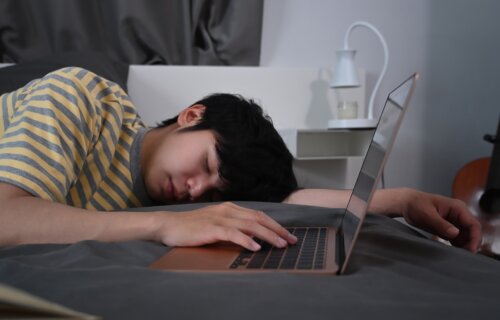BOSTON — Sleep experts want to set the record straight on the importance of teens establishing a healthy nighttime routine, while debunking some common myths. A survey of parents and guardians led by researchers at Brigham and Women’s Hospital reveals that over two-thirds hold incorrect assumptions regarding the safety of melatonin supplements, the ineffectiveness of later school start times, and the dangers of oversleeping on the weekends.
In all, 200 caregivers on 10 common sleep myths. One of the three myths that three in four parents believed to be true is that there is no harm in going to bed late and waking up late on the weekends, as long as they got enough sleep in between. However, the team clarifies that oversleeping on the weekend promotes a behavior called “social jetlag” when a person feels tired and groggy throughout the day because of a shift in their sleep schedule. Having social jetlag does not restore sleep deficits and some other research has associated it with performing worse in school, risky behaviors, drinking more alcohol, and an increased risk of mental health issues.
“Adolescents face myriad barriers when it comes to sleep, some of which are physiological and others behavioral. Given these challenges, it is critical to reduce any modifiable barriers that stand in the way for young people when it comes to sleep. Our goal was to identify common adolescent sleep myths and inspire future public outreach and education efforts to promote evidence-based beliefs about sleep health,” explains Rebecca Robbins, PhD, a researcher at the Brigham’s Division of Sleep and Circadian Disorders and Instructor in Medicine at Harvard Medical School, in a statement. “Caregivers and adolescents commonly turn to the internet and social media for guidance on topics such as sleep. Although these platforms can be sources of evidence-based information, there is the chance that misinformation can proliferate on these platforms.”
The second commonly-believed myth was that if school starts later then adolescents will stay up longer and go to sleep at a later time. Sixty-nine parents agreed with this myth. However, the study authors note there are multiple studies that have shown that starting middle and high school later in the day can actually lead to more sleep and do not affect students’ overall bedtimes.
Finally, the last myth focuses on the use of melatonin supplements in children. Over two-thirds of caregivers believed that adolescents can safely take melatonin supplements because are natural. However, there are no long-term studies to support this statement, especially on melatonin’s effects on puberty and development;. What’s more, melatonin supplements are not government regulated and their contents can vary depending on the brand.
“Future research should aim to counter myths and promote evidence-based beliefs about adolescent sleep,” says study co-author Dr. Judith Owens, a researcher at Boston Children’s Hospital.
Results from the study are published in Sleep Health.
